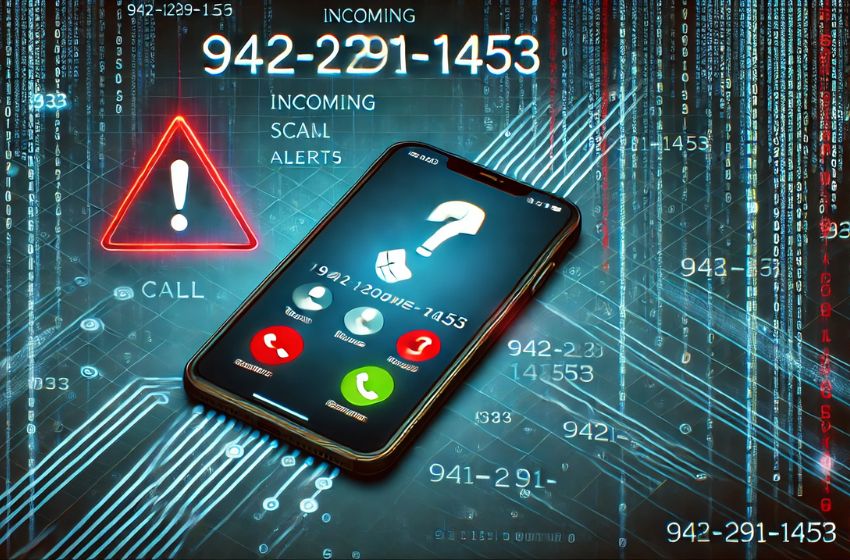In an age where phone scams and unsolicited calls have become increasingly prevalent, it is essential to remain cautious and informed about unknown numbers. One such number that has caught attention is 941-291-1453. Reports from users indicate that calls from this number may be suspicious, prompting concerns regarding potential fraud, robocalls, or telemarketing scams. In this article, we will delve into the origins of this number, explore reports from recipients, discuss possible threats, and provide guidance on how to handle such calls.
Understanding the 941 Area Code
The number 941-291-1453 originates from the 941 area code, which serves southwestern Florida, covering key cities such as Sarasota, Bradenton, and Venice. While the 941 area code itself is legitimate, it does not necessarily mean that all calls coming from this region are safe. Scammers often use spoofing techniques to manipulate caller IDs, making it appear as though a call is coming from a local and trusted source when, in reality, it may originate from anywhere in the world.
Reports and Complaints About 941-291-1453
Multiple sources and online complaint boards have flagged 941-291-1453 as a potentially suspicious number. Here are some of the common experiences reported by recipients:
- Robocalls and Automated Messages: Many individuals have received pre-recorded messages from this number, typically offering services or making urgent claims about financial matters, legal issues, or account suspensions.
- Telemarketing Calls: Some users report that this number is associated with aggressive telemarketing campaigns, often pushing questionable products or services.
- Phishing Attempts: A few complaints indicate that the caller attempts to extract personal or financial information under the pretense of confirming identity or resolving an issue.
- Repeated Nuisance Calls: Recipients note that calls from 941-291-1453 tend to be frequent and persistent, often hanging up when answered or calling multiple times a day.
Potential Risks and Threats
Receiving calls from unfamiliar numbers like 941-291-1453 can pose various risks, especially if the caller has malicious intent. Here are some of the primary dangers:
1. Financial Scams
Scammers posing as financial institutions, credit agencies, or even the IRS may attempt to trick individuals into providing sensitive details such as banking information, Social Security numbers, or credit card details.
2. Identity Theft
Fraudsters often use phone calls to gather enough personal data to steal a person’s identity, leading to unauthorized transactions, loan applications, or even fraud committed in the victim’s name.
3. Tech Support Scams
One of the common tactics used by scammers involves claiming to be from tech support (e.g., Microsoft, Apple, or an antivirus company) and warning about a non-existent virus or security breach.
4. Social Security and IRS Impersonation
A frequent scam involves fraudulent claims that the recipient’s Social Security number has been compromised or that they owe unpaid taxes to the IRS, threatening legal consequences if immediate action isn’t taken.
5. Romance or Fake Charity Scams
Some scam calls come in the guise of charity solicitations or even romance scams, where fraudsters manipulate victims emotionally to extract money.
How to Handle Calls from 941-291-1453
Given the potential risks, it’s crucial to take appropriate measures when encountering suspicious phone numbers like 941-291-1453. Here are some steps you can take:
1. Do Not Answer Unknown Calls
If you don’t recognize the number, it’s best to let it go to voicemail. Scammers often rely on a victim’s curiosity to engage them in conversation.
2. Avoid Sharing Personal Information
Legitimate organizations will never ask for sensitive personal details over the phone. If a caller pressures you for such information, it’s a red flag.
3. Block the Number
Most smartphones allow users to block unwanted calls. If you’ve received multiple calls from 941-291-1453, consider blocking it to prevent future disturbances.
4. Report the Number
If you suspect fraudulent activity, you can report the number to:
- The Federal Trade Commission (FTC) (ReportFraud.ftc.gov)
- The Federal Communications Commission (FCC) (ConsumerComplaint.fcc.gov)
- Your phone carrier (many providers offer scam call reporting services)
5. Use Call Screening Apps
Apps like Truecaller, Hiya, and RoboKiller can help identify and block spam calls before they reach you.
Why Do Scammers Use Numbers Like 941-291-1453?
Scammers use various techniques to manipulate caller IDs and appear as legitimate numbers, a tactic known as spoofing. Some reasons why fraudulent actors use numbers like 941-291-1453 include:
- Impersonation of Local Entities: People are more likely to answer calls from their local area code.
- Evasion of Call Blocking: Changing numbers frequently makes it harder for authorities and users to block their calls permanently.
- Exploitation of Trust: Some calls appear to be from banks, government agencies, or reputable businesses, making victims more likely to comply.
Legal Actions Against Scam Callers
Authorities have been cracking down on robocalls and scam operations in recent years. The TRACED Act, passed in the U.S., requires carriers to implement STIR/SHAKEN technology to prevent caller ID spoofing. Additionally, agencies like the FTC and FCC continue to impose fines and shut down fraudulent call centers operating in and outside the country.
Conclusion
Receiving unsolicited calls from 941-291-1453 can be a nuisance and a potential security risk. Whether it is a telemarketing attempt or a scam call, the best approach is to remain cautious and take necessary precautions. By staying vigilant, blocking unwanted numbers, and reporting suspicious activity, you can protect yourself from falling victim to fraudulent schemes.
For more insights into digital safety, scam awareness, and cybersecurity, visit Empire Magazines, where we keep you updated with the latest information to safeguard your personal and financial security.

